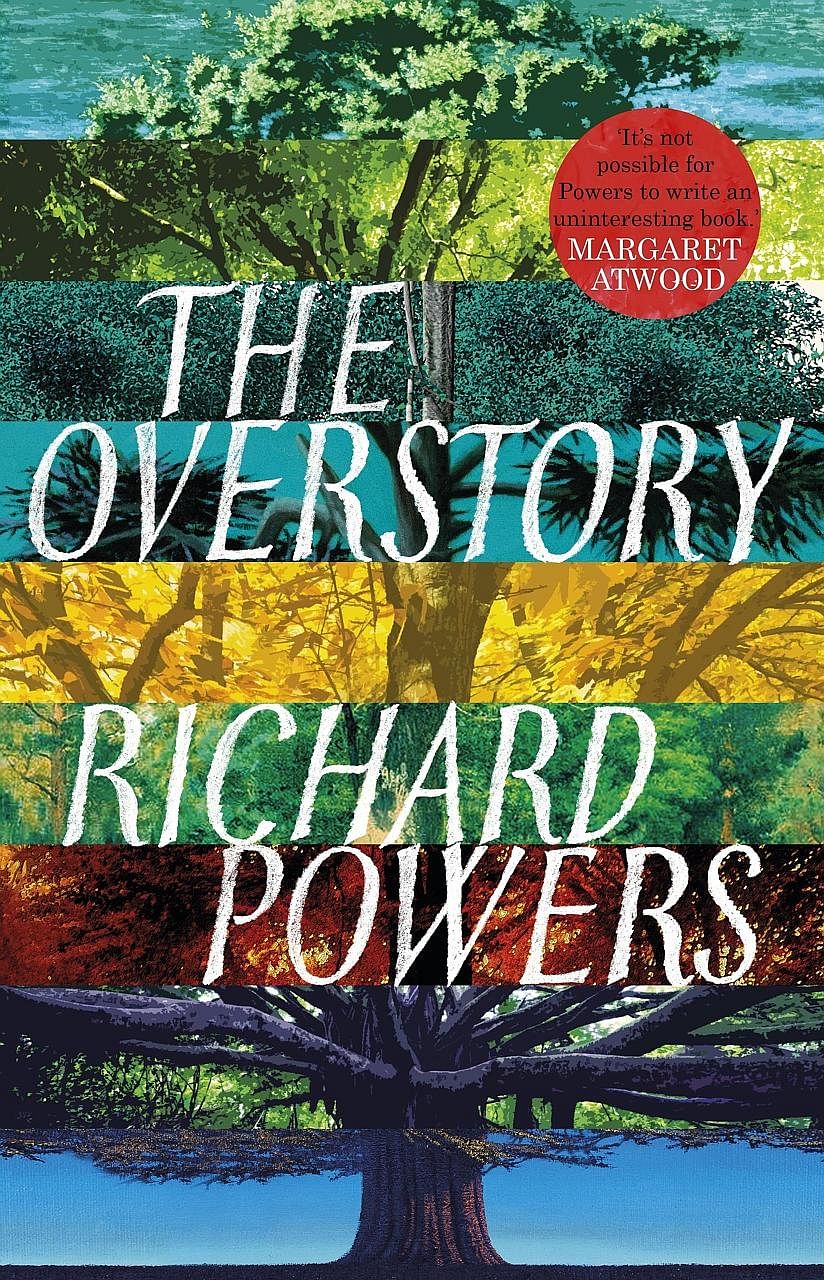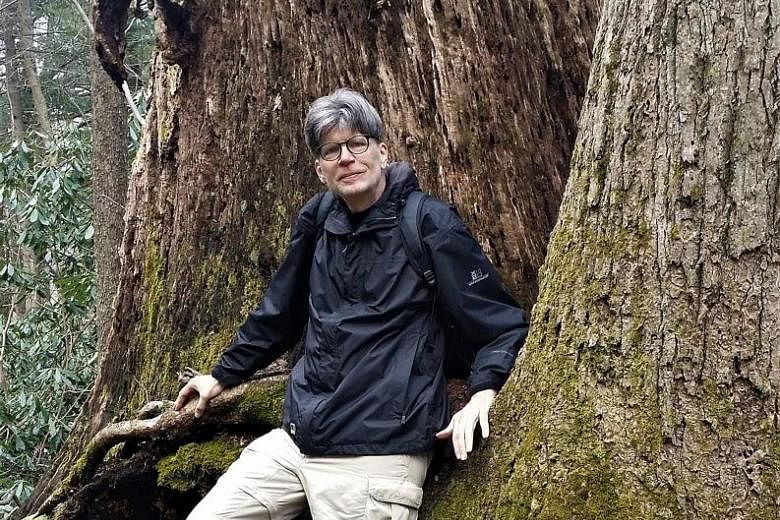Who: American novelist Richard Powers, 61, has written 12 books. He is the winner of a MacArthur grant and the National Book Award, and has been a Pulitzer Prize and four-time National Book Critics Circle Award finalist.
THE OVERSTORY
Random House/Paperback/ 505 pages/$32.95/Kinokuniya Books/
4/5
"The best arguments in the world won't change a person's mind. The only thing that can do that is a good story," says a character in this sprawling fable that unfolds against a backdrop of global deforestation.
It is not just one story, but the intertwined tales of nine people whose lives are shaped by their relationships with trees.
Through a process of gentle persuasion, this meditative volume asks an important question: Our rates of deforestation are unsustainable - we are on the brink of environmental catastrophe - but people can't see the obvious. Why?
Powers' book is vast in its scope, stretching from antebellum New York to the late 20th-century Timber Wars of the Pacific North-west to the present day, with a cast of characters such as a psychology professor, a computer whiz and a Vietnam War loadmaster-turnedactivist.
It is a sensitive love letter to trees and exemplifies its subject matter with interlaced plots, offshoots and intricately patterned motifs.
The first few chapters unfold in the manner of a Terrence Malick film - The Tree Of Life (2011) springs to mind - as the narrator dwells on the miracles of nature and the wonder of new beginnings.

Much of this is spell-binding, all the more so because it is rooted in reality. For instance, a botanist in the novel - probably inspired by real-life ecologist Suzanne Simard - discovers that trees in the forest are able to "talk" to each other, sending chemical signals through underground and airborne networks.
Powers is scathing in his assessment of logging companies and the authorities.
He points out that tree farms, which are managed for timber production, have less diversity than a suburban backyard.
He does not coerce the reader into agreement. Central to his novel is the idea that we already have much in common with trees - we share a quarter of our genes with them and even replicate their structures in the branching codes of computer science.
The Overstory drives home the point that trees are not objects to be mindlessly used and abused, but members of a community with wisdom to impart.
But the big question is this: Will the book change people's minds - and, better still, get them to do something about the problem?
Powers' work has long tended towards maximalism. The Overstory, at more than 500 pages, is no exception. This is a novel best appreciated after several re-readings. It demands a level of endurance few readers these days seem to possess.
Maybe the discourse swirling around the book will plant seeds in the minds of politicians, business moguls and the rest of us.
One can but hope that by the time society takes radical action against what looks to be an imminent ecological disaster, it will not be too late.
If you like this, read: Barkskins by Annie Proulx (Harpercollins, 2016, $22.47, Books Kinokuniya), an epic novel that spans 300 years from the deforestation of the New World to the contemporary era of climate change.


